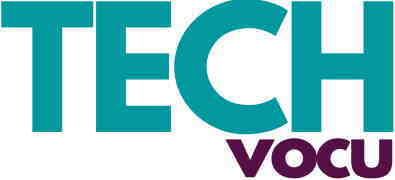Introduction
As human beings, we are attracted to things that grab our attention. Whether it’s a catchy tune or an attention-grabbing headline, we tend to gravitate towards things that pique our curiosity. In the online world, headlines play a significant role in attracting readers to your content.
However, your headline can make or break your content. It determines whether readers will take the time to read your article or move on to something else. In this blog post, we will be discussing seven proven guidelines for writing attention-grabbing titles that rank on Google search.
Section 1: Keep it Short and Sweet
The length of your headline is crucial. Long, wordy headlines tend to turn readers off and reduce your chances of getting clicks. Aim for headlines that are between 50-60 characters in length, as this is the ideal length for search engines and social media platforms.
For example, instead of writing “A Comprehensive Guide to Growing Your Instagram Following: Tips, Strategies, and Case Studies,” you could simplify it to “Grow Your Instagram Following: Tips and Strategies.”
Section 2: Use Numbers and Statistics
Headlines that include numbers tend to perform better than those that don’t. They provide readers with a clear idea of what to expect from your content.
For example, “5 Tips for Healthy Living on a Budget” or “10 Statistics That Show the Importance of Content Marketing.” Be sure to use exact numbers rather than rounded figures to make your headlines more credible and trustworthy.
Section 3: Don’t Be Afraid to be Bold
Headlines that make bold claims or use strong language tend to grab readers’ attention. However, be careful not to cross the line and use clickbait. Your content should deliver on the promises made in your headline.
For example, “The Ultimate Guide to Improving Your Productivity in Just One Week” or “The Secret to Writing High-Converting Copy Every Time.”
Section 4: Use Power Words
Power words are persuasive words that evoke an emotional response from readers. They help to create an emotional connection between your content and your readers.
For example, instead of saying “Tips for Writing Better Headlines,” say “Secrets to Writing Headlines That Demand Attention.” Some examples of power words include free, proven, ultimate, and killer.
Section 5: Use SEO Keywords
Using SEO keywords in your title helps your content rank higher on search engines. However, don’t stuff your title with too many keywords, as this could hurt your ranking. Use long-tail keywords that are specific to your niche or topic.
For example, instead of “How to Cook Chicken,” use “Easy and Delicious Chicken Recipes for Weeknight Dinners.”
Section 6: Be Specific
Specific headlines tend to grab readers’ attention better than vague ones. Your headline should clearly convey what your content is about and what readers can expect.
For example, instead of “The Benefits of Yoga,” use “5 Surprising Benefits of Practicing Yoga Every Day.”
Section 7: Use Questions
Using questions in your headlines creates a sense of curiosity in readers and encourages them to read on to find the answers.
For example, “Are You Making These Mistakes in Your Social Media Marketing?” or “Why Is Content Marketing Crucial for Your Business?”
FAQs
Q: What is the ideal length for a headline?
A: The ideal length for a headline is between 50-60 characters.
Q: Should I use actual numbers or rounded figures in my headline?
A: It’s better to use exact numbers rather than rounded figures to make your headlines more credible and trustworthy.
Q: Are clickbait headlines effective?
A: Clickbait headlines can grab readers’ attention, but they should be avoided as they can damage your credibility and turn readers off in the long run.
Q: How many SEO keywords should I use in my headline?
A: Use one or two long-tail keywords that are specific to your niche or topic. Avoid stuffing your headline with too many keywords.
Q: Can I use questions in my headlines?
A: Yes, using questions in your headlines can create a sense of curiosity and encourage readers to read on.
Q: Why is it important to be specific in my headlines?
A: Specific headlines tend to grab readers’ attention better than vague ones. Your headline should clearly convey what your content is about and what readers can expect.
Q: How can power words improve my headlines?
A: Power words are persuasive words that create an emotional connection between your content and your readers. They can help to grab readers’ attention and encourage them to read on.
Conclusion
So there you have it, seven proven guidelines for writing attention-grabbing titles that rank on Google search. Remember to keep your headlines short and sweet, use numbers and statistics, don’t be afraid to be bold, use power words, use SEO keywords, be specific, and use questions. By following these guidelines, you can increase your chances of attracting readers to your content and improving your search engine ranking.
Lastly, don’t forget to put your own spin and personality into your headlines. Don’t be afraid to experiment and try new things. And most importantly, have fun with it!

